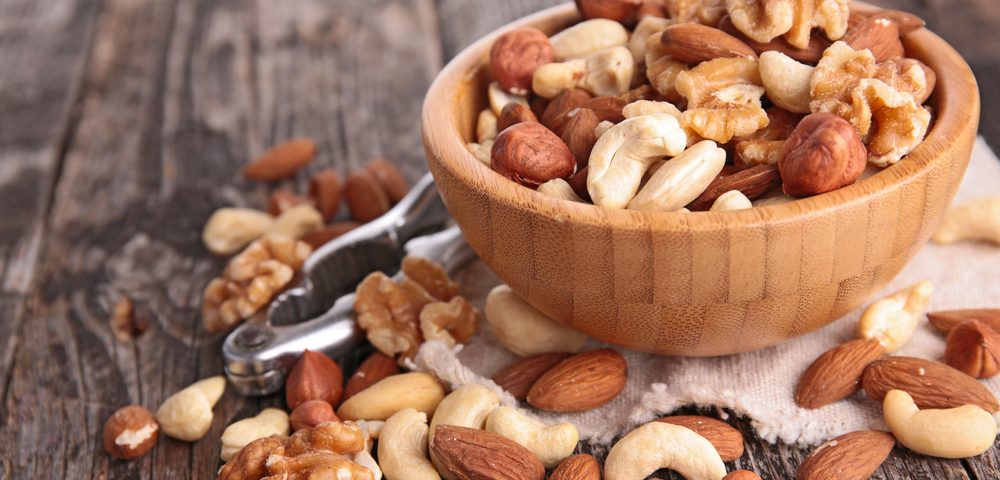Researchers at Chan School of Public Health and the Brigham and Women’s Hospital in Boston have revealed that eating lots of tree nuts — including almonds, hazelnuts, pecans, pine nuts, Brazil nuts, cashews, walnuts, and pistachios — may reduce the rates of death in non-metastatic prostate cancer (PC) patients. The study,”Nut consumption and prostate cancer risk and mortality,” was funded by the International Tree Nut Council and published in the British Journal of Cancer.
Nuts are rich in nutrients and bioactive compounds that may have antioxidant, anti-inflammatory, and cardio-protective properties. Recent epidemiological studies have pointed to an association between nut consumption and reduced risk of several chronic conditions, including type 2 diabetes, inflammation, and cardiovascular disease.
Although little is known about nut consumption and prostate cancer incidence, recent studies have suggested that insulin resistance, a condition that leads to type 2 diabetes, may lead to prostate cancer risk and progression. Therefore, investigators addressed whether nut consumption could affect prostate cancer incidence or PC-derived mortality.
They examined data from a large prospective cohort study, the Health Professionals Follow-Up Study (HPFS), established in 1986, that included 47,299 male U.S. health professionals. Participants completed a semi-quantitative food frequency questionnaire at baseline and every four years after, where, among other foods, nut consumption was evaluated.
During 26 years of follow-up, 6,810 men were diagnosed with prostate cancer, 4,346 of whom had non-metastatic PC. At baseline, patients who ate more nuts were more likely to take vitamin supplements, less likely to have high blood pressure, consumed more olive oil and tomatoes, drank more alcohol, and had a higher Mediterranean diet score.
Although nut consumption was not associated with being diagnosed with prostate cancer, patients who ate nuts five or more times a week had a 34 percent decreased risk of dying from prostate cancer, compared to those who ate nuts less than once a month, suggesting that nuts may improve the overall survival of prostate cancer patients.
Previous studies had shown that among the prostate cancer patients in the HPFS, cardiovascular disease was the leading cause of death, accounting for about one-third of the deaths. Since nuts reduce the risk of cardiovascular disease, this may be a reason why nut consumption decreases prostate cancer mortality among men diagnosed with non-metastatic PC.
“These findings add to the growing body of evidence showing that nuts can and should be part of a healthy diet,” Maureen Ternus, MS, RD, executive director of the International Tree Nut Council Nutrition Research and Education Foundation, said in a press release.
“During the summer months especially, tree nuts are a great portable snack to take to the beach, on a hike, or camping,” she added. “Just 1.5 ounces of nuts per day (about 1/3 cup) can have a positive impact on health.”

